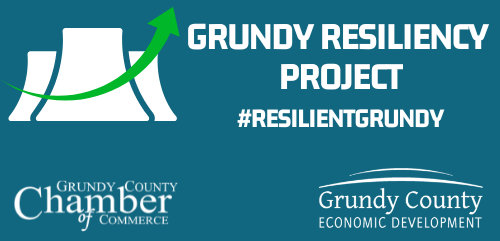Tips and Tricks to Ace Experiential Marketing

By Christina R. Green
Experiential marketing is a big way to get your audience’s attention. In the past, it was something only big brands did. But now mom and pop businesses are getting involved and realize it doesn’t have to cost a lot of money to give your customers a memorable experience. The return-on-investment is quite high with experiential marketing because people remember experiences. They share them and they write reviews based on them.
If you want to improve your sales and get more people talking about your business, experiential marketing is a great way to do it.
While one could argue that offering a strong customer service experience is experiential marketing, we’re going to take it a bit past that. Assuming you already give good customer service we’re going to build on that.
Events and Experience in Marketing
One of the most cost-effective ways to incorporate experiential marketing into your small business is through events. Events can fit any budget. They’re also a lot of fun. Popular types of business events include:
- You can show your appreciation for current customers or open the event up to the larger community by appreciating everyone on the anniversary of your business.
- Open House. Invite people to your place of business to get to know you and your team.
- Classes. Teach classes on something that appeals to your ideal customer.
- Meet-and-Greets. Bring in a famous local celebrity and offer a special meet-and-greet or photo op.
- VIP Sales. Post a secret VIP sale “Speakeasy” style. Tease your audience that you will be hosting a special VIP sale but don’t announce when it will be. Keep it a secret until the day of. Then make a huge announcement on social media. The secret flash announcement will get people logging into your website and drive excitement.
- Solve a problem. These types of events may not directly have anything to do with your business but they allow you to help solve a problem your customers have and insert yourself in the process. You might bring in a special speaker who can help with something that is troubling them. For instance if you sell calendars and planners, bring in a productivity expert who can help busy parents, professionals, or another demographic that fits your business.
The events you choose to host should be decided by your business goals and what your audience enjoys.
Tips for Hosting an Awesome Event
If you’re not an event planner you may be feeling slightly overwhelmed with the thought of having to put a business event together. In addition to all the planning and ordering of materials and/or food, there are things you can be doing that will improve the success of your event. These things are items you might not think about at first glance but they can make your event extremely successful. Try these tips:
- Decide what type of event fits your business goals and the needs and desires of your ideal audience. The second part is extremely important because if your ideal audience isn’t interested, you’ll be marketing to people at your event who aren’t people you want to sell to.
- Build (and clean) your list. Ideally, you already have some sort of list of past customers, people who have come into your store, people who signed up for discounts or a VIP Club or any other way that you’ve been marketing people through their contact information. Clean up that list before you send any invites out. Look for duplicates, invalid emails, and (obviously) fake contacts.
- Send invites or notices about your event. In the past businesses would send written invites to customers or prospective customers. While most people handle invites online these days, you don’t want to settle on just one method of inviting. Sure, you want to use your list to invite them via email but you should also consider inviting in a targeted campaign on social media, and getting your information out there to local organizations–such as a chamber of commerce–that can help you let the community know.
- Use scarcity and fear of missing out to entice sign-ups. It’s difficult to get people to RSVP these days. One way to do this is to limit the number of spots available at your event and to give people deadlines for registering. Another way is to talk about what they miss if they skip your event.
- Enable social proof. If your event requires an RSVP, consider an invitation that when they register online gives them the ability to share the information with their friends. Not only will they be more likely to come if they know people there, but it may also bring in brand new customers for you. It’s an extra bonus as these new customers are referred by your existing ones. A potential customer is much more likely to listen to their friend’s ideas about you than your marketing.
- Use a unique hashtag and encourage people to share pictures on social media. Your “attendees” are classified as more than just those people in the room on the day of your event. If you create a hashtag and encourage people to share on social media, half the town could feel like they participated and will look forward to the next one.
When you host an event, you want your attendees to have an amazing experience but you’re also doing it to improve sales. That means you want to do everything you can at the event to build those connections. Asking people for their emails is a good way to stay in touch. But providing them with something in exchange for their email is an even more effective way to improve the relationship. Most people buy from those they know, like, and trust. You want to focus on that during your event and into the future.
Christina R. Green teaches small businesses and chambers of commerce how to connect through content. Her articles have appeared in the Midwest Society of Association Executives’ Magazine, NTEN.org, AssociationTech, and WritersWeekly. She is a regular blogger at Frankjkenny.com.
Christina is an introverted writer on a quest to eradicate boring copy and bring great storytelling to organizations everywhere.

